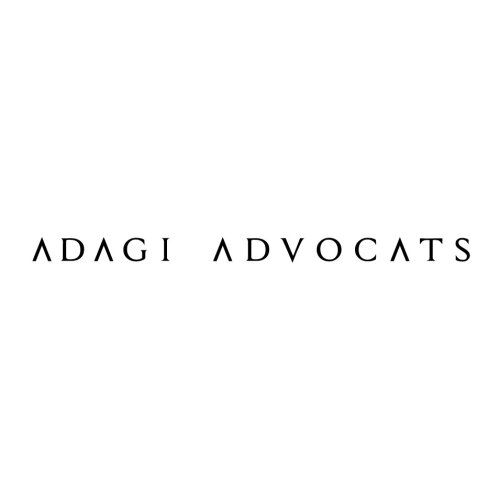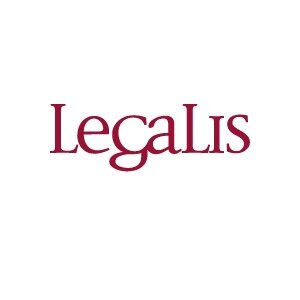Best Renewable & Alternative Energy Lawyers in Andorra
Share your needs with us, get contacted by law firms.
Free. Takes 2 min.
Or refine your search by selecting a city:
List of the best lawyers in Andorra
About Renewable & Alternative Energy Law in Andorra
Renewable and alternative energy is a growing field in Andorra, motivated by global climate goals and the country’s unique geography. Andorra imports most of its energy but is taking concrete steps to diversify sources by encouraging the use of solar, hydropower, and other sustainable energy solutions. The legal framework around this field covers not just the generation and distribution of renewable energy, but also taxation, incentives, compliance with environmental standards, and international agreements on clean energy.
Why You May Need a Lawyer
Legal advice is often crucial when navigating the complex landscape of renewable and alternative energy in Andorra. You may need a lawyer if you are:
- Starting a renewable energy project and want to ensure regulatory compliance.
- Negotiating contracts for the supply, sale, or purchase of green energy.
- Seeking to benefit from government incentives for installing solar panels or other clean technologies.
- Faced with disputes over land use or environmental impact assessments related to energy projects.
- Dealing with cross-border energy trade or investments.
- Ensuring your business operations meet all environmental and energy efficiency standards.
- Needing assistance with the permitting process for renewable installations.
Local Laws Overview
Andorra’s legal approach to renewable and alternative energy is shaped by its location, size, and reliance on imported energy. A few key aspects include:
- Strict environmental regulations covering the use and installation of renewable energy technologies.
- Permits and approvals required for solar, hydropower, and wind energy generators, both residential and commercial.
- Specific incentives and subsidies for individuals and businesses investing in alternative energies such as photovoltaic panels.
- Laws requiring buildings to meet certain energy efficiency standards, encouraging the adoption of cleaner technologies.
- Rules for integrating renewable energy systems into the national grid, including safety and compatibility standards.
- Participation in cross-border projects under international frameworks to ensure energy security and sustainability.
Frequently Asked Questions
What is considered renewable or alternative energy in Andorra?
Renewable energy includes solar, hydropower, wind, and other sources that are naturally replenished and have a lower environmental impact. Alternative energy encompasses these and any other non-traditional sources that reduce reliance on fossil fuels.
Do I need a permit to install solar panels on my property?
Yes. Andorra requires permits for most solar panel installations, especially if they are part of commercial projects or connected to the grid. Residential users should check with the local commune or the national energy authority for requirements.
Are there financial incentives for individuals or businesses adopting renewable energy?
Yes. The government offers various incentives, such as grants or tax reductions, to encourage investments in renewable technologies. These may change over time and are subject to eligibility criteria.
What are my obligations if I want to sell renewable energy back to the grid?
You must follow national grid connection rules, obtain the necessary permits, and ensure your system meets technical and safety standards. There may also be tax or reporting obligations associated with selling excess energy.
Can foreign investors participate in Andorran renewable energy projects?
Yes, foreign investment is permitted but may be subject to additional regulatory scrutiny and compliance with both local and international energy agreements.
How are disputes over land use for renewable projects resolved?
Disputes are generally handled through administrative procedures or, if unresolved, through the courts. It is advisable to seek legal advice early to avoid project delays.
Are there environmental impact assessment requirements?
Yes, especially for larger or commercial-scale renewable energy projects. Assessments must be conducted and approved according to national environmental regulations.
Is energy storage regulated in Andorra?
Energy storage is gaining attention and certain forms, especially at commercial scale, may require permits or must comply with safety standards.
What are the penalties for failing to comply with renewable energy laws?
Penalties can range from fines to mandatory removal of non-compliant installations and suspension of grid connection. Repeated or serious violations may result in court proceedings.
Who enforces renewable energy regulations in Andorra?
Regulations are primarily enforced by the national energy authority and environmental agencies, with support from local municipalities. These bodies also offer guidance and oversee compliance.
Additional Resources
If you need more information or support regarding renewable and alternative energy in Andorra, consider reaching out to the following:
- Government of Andorra’s Department of Environment and Sustainability
- Andorra’s Energy Regulatory Authority
- Local municipal authorities
- Chamber of Commerce, Industry and Services of Andorra
- International organizations focused on renewable energy and environmental protection
Next Steps
If you’re seeking legal assistance in the field of renewable and alternative energy in Andorra, start by gathering all relevant documents related to your project or inquiry. Then, consult with a lawyer specializing in energy, environment, or administrative law. Ask about their experience with renewable energy matters and clarify their fees and process. You can contact the Andorran Bar Association, local legal directories, or request recommendations from industry associations. Be proactive, as early engagement with a legal expert can help you avoid costly mistakes and ensure your project’s success.
Lawzana helps you find the best lawyers and law firms in Andorra through a curated and pre-screened list of qualified legal professionals. Our platform offers rankings and detailed profiles of attorneys and law firms, allowing you to compare based on practice areas, including Renewable & Alternative Energy, experience, and client feedback.
Each profile includes a description of the firm's areas of practice, client reviews, team members and partners, year of establishment, spoken languages, office locations, contact information, social media presence, and any published articles or resources. Most firms on our platform speak English and are experienced in both local and international legal matters.
Get a quote from top-rated law firms in Andorra — quickly, securely, and without unnecessary hassle.
Disclaimer:
The information provided on this page is for general informational purposes only and does not constitute legal advice. While we strive to ensure the accuracy and relevance of the content, legal information may change over time, and interpretations of the law can vary. You should always consult with a qualified legal professional for advice specific to your situation.
We disclaim all liability for actions taken or not taken based on the content of this page. If you believe any information is incorrect or outdated, please contact us, and we will review and update it where appropriate.
Browse renewable & alternative energy law firms by city in Andorra
Refine your search by selecting a city.

















